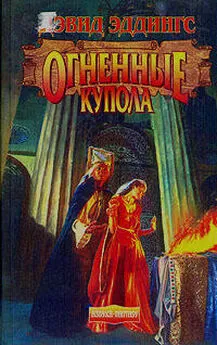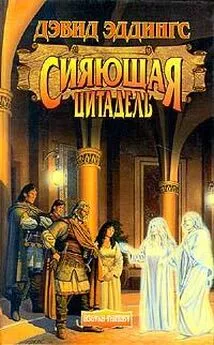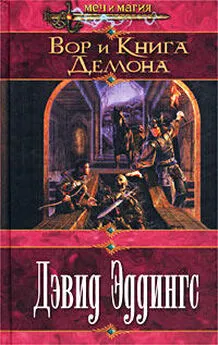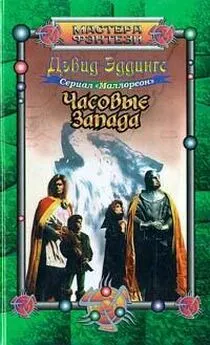David Wallace - Infinite jest
- Название:Infinite jest
- Автор:
- Жанр:
- Издательство:Back Bay Books
- Год:2006
- ISBN:нет данных
- Рейтинг:
- Избранное:Добавить в избранное
-
Отзывы:
-
Ваша оценка:
David Wallace - Infinite jest краткое содержание
Infinite Jest is the name of a movie said to be so entertaining that anyone who watches it loses all desire to do anything but watch. People die happily, viewing it in endless repetition. The novel Infinite Jest is the story of this addictive entertainment, and in particular how it affects a Boston halfway house for recovering addicts and a nearby tennis academy, whose students have many budding addictions of their own. As the novel unfolds, various individuals, organisations, and governments vie to obtain the master copy of Infinite Jest for their own ends, and the denizens of the tennis school and halfway house are caught up in increasingly desperate efforts to control the movie — as is a cast including burglars, transvestite muggers, scam artists, medical professionals, pro football stars, bookies, drug addicts both active and recovering, film students, political assassins, and one of the most endearingly messed-up families ever captured in a novel.
On this outrageous frame hangs an exploration of essential questions about what entertainment is, and why it has come to so dominate our lives; about how our desire for entertainment interacts with our need to connect with other humans; and about what the pleasures we choose say about who we are. Equal parts philosophical quest and screwball comedy, Infinite Jest bends every rule of fiction without sacrificing for a moment its own entertainment value. The huge cast and multilevel narrative serve a story that accelerates to a breathtaking, heartbreaking, unfogettable conclusion. It is an exuberant, uniquely American exploration of the passions that make us human and one of those rare books that renew the very idea of what a novel can do.
Infinite jest - читать онлайн бесплатно полную версию (весь текст целиком)
Интервал:
Закладка:
Hal tortures himself by imagining swarthy leering types threatening to torture various loved ones if Hal can’t come up with the name of the kid in Valuable Coupon and Low-Temperature Civics and Wave Bye-Bye to the Bureaucrat.
There are two cartridges on V.R. 6’s glass shelves of Himself getting interviewed in various arty Community-Access-cable-type forums, which Hal declines to watch.
The lights’ slight flicker and subtle change in the pressure of the room is from the E.T.A. furnaces kicking on way down in the tunnels below Comm.-Ad. Hal shifts uneasily on the couch, spitting into the wastecan. The very faint smell of burnt dust is also from the furnace.
A minor short didactic one Hal likes and runs twice in a row is Wave Bye-Bye to the Bureaucrat. A bureaucrat in some kind of sterile fluorescent-lit office complex is a fantastically efficient worker when awake, but he has this terrible problem waking up in the A.M., and is consistently late to work, which in a bureaucracy is idiosyncratic and disorderly and wholly unacceptable, and we see this bureaucrat getting called in to his supervisor’s pebbled-glass cubicle, and the supervisor, who wears a severely dated leisure suit with his shirt-collar flaring out on either side of its rust-colored lapels, tells the bureaucrat that’s he’s a good worker and a fine man, but that this chronic tardiness in the A.M. is simply not going to fly, and if it happens one more time the bureaucrat is going to have to find another fluorescent-lit office complex to work in. It’s no accident that in a bureaucracy getting fired is called ‘termination,’ as in ontological erasure, and the bureaucrat leaves his supervisor’s cubicle duly shaken. That night he and his wife go through their Bauhaus condominium collecting every alarm clock they own, each one of which is electric and digital and extremely precise, and they festoon their bedroom with them, so there are like a dozen timepieces with their digital alarms all set for 0615h. But that night there’s a power failure, and all the clocks lose an hour or just sit there blinking 0000h. over and over, and the bureaucrat still oversleeps the next A.M. He wakes late, lies there for a moment staring at a blinking 0000. He shrieks, clutches his head, throws on wrinkled clothes, ties his shoes in the elevator, shaves in the car, blasting through red lights on the way to the commuter rail. The 0816 train to the City pulls in to the station’s lower level just as the crazed bureaucrat’s car screeches into the station’s parking lot, and the bureaucrat can see the top of the train sitting there idling from across the open lot. This is the very last temporally feasible train: if the bureaucrat misses this train he’ll be late again, and terminated. He hauls into a Handicapped spot and leaves the car there at a crazy angle, vaults the turnstile, and takes the stairs down to the platform seven at a time, sweaty and bug-eyed. People scream and dive out of his way. As he careers down the long stairway he keeps his crazed eyes on the open doors of the 0816 train, willing them to stay open just a little longer. Finally, filmed in a glacial slo-mo, the bureaucrat leaps from the seventh-to-the-bottom step and lunges toward the train’s open doors, and right in mid-lunge smashes headlong into an earnest-faced little kid with thick glasses and a bow-tie and those nerdy little schoolboy-shorts who’s tottering along the platform under a tall armful of carefully wrapped packages. Kerwham, they collide. Bureaucrat and kid both stagger back from the impact. The kid’s packages go flying all over the place. The kid recovers his balance and stands there stunned, glasses and bow-tie askew. [279]The bureaucrat looks frantically from the kid to the litter of packages to the kid to the train’s doors, which are still open. The train thrums. Its interior is fluorescent-lit and filled with employed, ontologically secure bureaucrats. You can hear the station’s PA announcer saying something tinny and garbled about departure. The stream of platform foot-traffic opens around the bureaucrat and the stunned boy and the litter of packages. Ogilvie’d once lectured for a whole period on this kid’s character as an instance of the difference between an antagonist and a deuteragonist in moral drama; he’d mentioned the child-actor’s name over and over. Hal tries whacking himself just over the right eye several times, to dislodge the name. The film’s bureaucrat’s buggy eyes keep going back and forth between the train’s open doors and the little kid, who’s looking steadily up at him, almost studious, his eyes big and liquid behind the lenses. Hal doesn’t remember who played the bureaucrat, either, but it’s the kid’s name that’s driving him bats. The bureaucrat’s leaning away, inclined way over toward the train doors, as if his very cells were being pulled that way. But he keeps looking at the kid, the gifts, struggling with himself. It’s a clear internal-conflict moment, one of Himself’s films’ very few. The bureaucrat’s eyes suddenly recede back into their normal places in his sockets. He turns from the fluorescent doors and bends to the kid and asks if he’s OK and says it’ll all be OK. He cleans the kid’s spectacles with his pocket handkerchief, picks the kid’s packages up. About halfway through the packages the PA issues something final and the train’s doors close with a pressurized hiss. The bureaucrat gently loads the kid back up with packages, neatens them. The train pulls out. The bureaucrat watches the train pull out, expressionless. It’s anybody’s guess what he’s thinking. He straightens the kid’s bow-tie, kneeling down the way adults do when they’re ministering to a child, and tells him he’s sorry about the impact and that it’s OK. He turns to go. The platform’s mostly empty now. Now the strange moment. The kid cranes his neck around the packages and looks up at the guy as he starts to walk away:
‘Mister?’ the kid says. ‘Are you Jesus?’
‘Don’t I wish,’ the ex-bureaucrat says over his shoulder, walking away, as the kid shifts the packages and frees one little hand to wave Bye at the guy’s topcoat’s back as the camera, revealed now as mounted on the 0816’s rear, recedes from the platform and picks up speed.
Wave Bye-Bye to the Bureaucrat remains Mario’s favorite of all their late father’s entertainments, possibly because of its unhip earnestness. Though to Mario he always maintains it’s basically goo, Hal secretly likes it, too, the cartridge, and likes to project himself imaginatively into the ex-bureaucrat’s character on the leisurely drive home toward ontological erasure.
As a kind of weird self-punishment, Hal also plans to subject himself to the horrific Fun with Teeth and Baby Pictures of Famous Dictators, then finally to one of Himself’s posthumous hits, a cartridge called Blood Sister: One Tough Nun that he’d always found kind of gratuitously nasty and overwrought, but which Hal has no idea that this piece of entertainment actually germinated out of James O. Incandenza’s one brief and unpleasant experience with Boston AA, in the B.S. mid-’90s, when Himself lasted two and a half months and then drifted gradually away, turned off by the simplistic God-stuff and covert dogma. Bob-Hopeless, Hal spits way more than is his norm, now, and also likes having the wastecan right nearby in case he might throw up. That afternoon he’d had zilch in the way of a kinesthetic sense: he couldn’t feel the ball on his stick. His nausea has nothing to do with watching his father’s cartridges. For the last year his arm’s been an extension of his mind and the stick an extension of the arm, acutely sensitive. Each of the cartridges is a carefully labelled black diskette; they’re all signed neatly out on the clipboard by the egg-shaped glass bookshelf and are loaded in the cueing slots and waiting to drop, in order, and be digitally decoded.
14 NOVEMBER YEAR OF THE DEPEND ADULT UNDERGARMENT
P. T. Krause: N. Cambridge: that infamous deceptive post-seizure feeling of well-being. That broken-fever, reversal-of-fortune-type highhearted feeling after a neuroelectric event. Poor Tony Krause awoke in the ambulance lizardless and continent and feeling right as rain. Lay there and flirted with the blue-jawed paramedic leaning over him, certain bawdy entendres on expressions like vital signs and dilation until the paramedic radioed ahead to Cambridge City’s E. Room to cancel the crash-cart. Manipulated his skinny arms in a parodic Minimal Mambo, lying there. Fiddle-de-dee’d the paramedic’s warning that post-seizure feelings of well-being were notoriously deceptive and transient.
And then also the little-mentioned advantage to being destitute and in possession of a Health Card that’s expired and not even in your name: hospitals show you a kind of inverted respect; a place like Cambridge City Hospital bows to your will not to stay; they all of a sudden defer to your subjective diagnostic knowledge of your own condition, which post-seizure condition you feel has turned the corner toward improvement: they bow to your quixotic will: it’s unfortunately not a free hospital but it is a free country: they honor your wishes and compliment your mambo and say Go with God.
It’s a good thing you can’t see what you look like, though.
And the serendipity of Cambridge City Hospital being just an eight-block stroll east on Cambridge St. and then south on Prospect, through mentholated autumn air, through Inman Square and up to Antitoi Entertainment, maybe the one last place where a renewed, post-seizure, on-the-diagnostic-upswing if still slightly shaky young gender-dysphoric might yet expect a bit of kindness, pharmacological credit, since the affairs of Wo and Copley Library and heart.
The big brick cake of the hospital behind Krause in purple twilight. The brisk click of his heels on pavement, boa semi-formally loose on his shoulders and down beneath each arm, hand holding red leather collar closed at the throat, head up and staying that way on its own, steady eyes meeting with blase dignity the eyes of whoever passes. The dignity of a man risen by will from the ashes of Withdrawal and now on the upswing and with places to go and potentially considerate Canadians to see. A charming and potentially once again in the not-too-distant future gorgeous creature with the renewed wherewithal to now meet the eyes of Inman Sq. pedestrians veering sharply away from the residual smells of men’s room stall and subway vomit, the ashes from which he’s been rescued and risen once again, feeling righter than rain. A rind of moon hanging cocked above a four-spired church. And the emergent stars are yo-yos, you feel, after a seizure: Poor Tony feels as if he could cast them out, draw them in again at will.
The way Poor Tony Krause, Lolasister, and Susan T. Cheese became mercenary adjuncts to something dour Bertraund Antitoi had invited them to call the “Front-Contre-O.N.A.N.isme’ was that, for a heavily cut bundle to split six ways, Lolasister, Susan T. Cheese, P. T. Krause, Bridget Tenderhole, Equus Reese, and the late Stokely (‘Dark Star’) McNair had had to wear identical red leather coats and auburn wigs and spike heels and go and hang around the lobby of Harvard Square’s Sheraton Commander Hotel with six mannish-looking women in the same wigs and coats while an androgynous Québecer insurgent who filled out h/his red leather coat in a way that made Bridget Tenderhole dig his nails into his palms in sheer green envy came through the Commander’s revolving Lucite doors and strode purposefully into the crowded Epaulet Ballroom and threw foul semi-liquid violet waste from a souvenir miniature waste-displacement barrel in the face of the Canadian Minister of Inter-O.N.A.N. Trade, who was addressing the U.S. press from a leaf-shaped rostrum. The decoys were then required to mill hysterically in the lobby, all twelve of them, and then hit the revolving doors and disperse in a dozen different vectors as the androgynous waste-wielding Québecer legged it out of the Epaulet Ballroom and lobby pursued by white-suited men with earplugs and Cobray M-l 1 subautomatics, so the security guys’d see identical epicene figures high-heeling it away in different directions and get fuddled about who to chase. Susan T. Cheese and Poor Tony’d met the Antitoi Bros. — only one of whom could or would speak, and who’d been in charge of the diversionary aspects of the Sheraton Commander operation, and had clearly been subordinate to still other Québecers of way higher I.Q. — Krause and S.T.C. had met them at Inman Square’s Ryle’s Tavern, which had Gender-Dysphoric Night every second Wednesday, and attracted comely and unrough trade, and which Poor Tony passed now (Ryle’s), just after the Man o’ War Grille, now only a block or so from the Antitois’ glass-and-novelty-shop front, feeling not so much quite ill again as just deeply tired, after only five or so blocks — that post-fever, sleep-for-a-week-type cellular fatigue — and is debating with himself about whether to have a go at the purses of the two young and unstriking women walking just a few steps ahead, both of their purses hanging only by the flimsiest of evening-gown-width straps from slumped shoulders, the duo interracial, rare and disquieting in metro Boston, the black girl talking a click a minute and the white one not responding, her weary stolid plod and air of inattention fairly begging for a purse-snatch, both of them with an air about them of routine victimization, the sort of demoralized lassitude Poor Tony felt always guaranteed a minimum of protest or pursuit — though the white girl wore formidable-looking running shoes under her tartan skirt. So intent was Poor Tony Krause on the logistics and implications of the possible purses dangled as if by God right before him — how different to hit the Antitois’ doorstep with liquid assets, to request a transaction rather than bare charity, more almost a social call than a contemptible Withdrawn snivel for compassion — so intent as he sidestepped an impressive pile of dog-droppings and passed across the broad windows of the Man o’ War that he never saw his old former crewmate Mad Matty Pemulis, a sure source of compassion, looking up and out and down and back up, aghast in recognition of what Poor Tony has come through the corridor to resemble.
Читать дальшеИнтервал:
Закладка:










